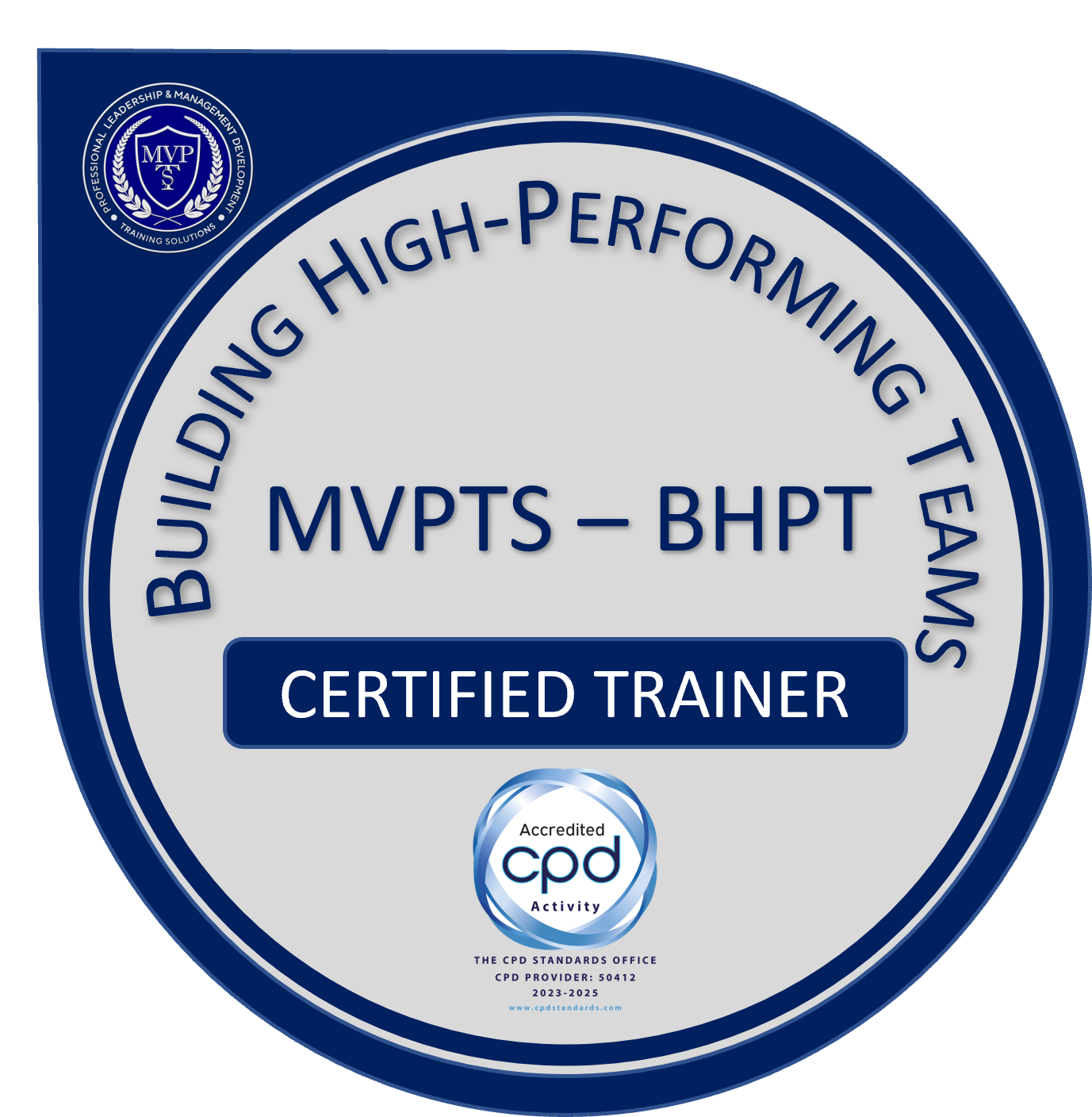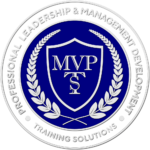Building High-Performing Teams Mastery

Course Description
Title: Certified Master of Building High-Performing Teams in Results-Oriented Cultures
The certification program “Building High-Performing Teams” comprises twelve comprehensive chapters designed to equip a diverse range of professionals with essential skills for cultivating high-performing teams in today’s business landscape. Beginning with an exploration of the significance of effective teams and common challenges, it progresses into trust-building strategies, employee engagement, and motivation techniques. The program addresses cross-functional collaboration, conflict resolution, team resilience, psychological safety, and emotional intelligence, all critical components of successful teamwork. It introduces Appreciative Inquiry as a means to foster positivity within teams and concludes by focusing on talent development, performance measurement, and celebrating achievements. Whether you are a manager seeking leadership insights, an HR professional enhancing talent management, or a diversity and inclusion practitioner promoting inclusivity, this certification program offers valuable tools for optimizing team dynamics and achieving organizational success.
Topics Covered
1. Module I: Setting the Stage for Team Excellence in High-Performing Teams
- Understanding the Importance of High-Performing Teams
- Identifying Common Team Building Challenges
- Defining High-Performance in Today’s Business Landscape
- The Impact of Effective Team Building on Organizational Success
2. Module II: Building Trust within High-Performing Teams
- The Role of Trust in Team Success
- Recognizing Trust-Building Behaviors
- Strategies to Establish Trust within Teams
- Addressing Trust Erosion and Rebuilding Trust
3. Module III: Effective Engagement in High-Performing Teams
- The Power of Employee Engagement
- Assessing Team Engagement Levels
- Creating a Culture of Open Communication
- Employee Recognition and Incentive Programs
4. Module IV: Motivating Others in High-Performing Teams
- Understanding Individual Motivation Factors
- Implementing Intrinsic and Extrinsic Motivation Techniques
- Setting Clear and Inspiring Goals
- Empowering Team Members Through Information Sharing
5. Module V: Cross-Functional Collaboration in High-Performing Teams
- Benefits and Challenges of Cross-Functional Collaboration
- Enhancing Interdepartmental Communication
- Communication in Crisis Situations as a Cross-Functional Team
- Resolving Conflicts in Cross-Functional Teams
6. Module VI: Collaborative Project Management in High-Performing Teams
- Agile Methodology Overview
- Scrum Framework in Project Management
- Kanban in Cross-Departmental Collaboration
- Challenges and Solutions in Collaborative Project Management
7. Module VII: Building Resilience in High-Performing Team
- The Importance of Team Resilience
- Developing a Resilience Mindset in Teams
- Strategies for Adapting to Change and Uncertainty as a High-Performing Team
- Nurturing a Supportive Team Culture
8. Module VIII: Psychological Safety in High-Performing Teams
- Understanding Psychological Safety in Team
- Measuring Psychological Safety in High-Performing Teams
- Barriers to Psychological Safety in High-Performing Teams
- Psychological Safety in Remote and Hybrid Teams
9. Module IX: Emotional Intelligence in High-Performing Teams
- The Fundamentals of Emotional Intelligence (EI)
- Recognizing and Managing Emotions in Yourself and Others
- Applying EI to Improve Team Communication
- Using EI to Navigate Conflict and Stress
10. Module X: Appreciative Inquiry in High-Performing Teams
- Introduction to Appreciative Inquiry (AI)
- Appreciative Inquiry Process within Teams
- Conducting AI Strengths-Based Team Assessment
- Building Positive Team Narratives Using Appreciative Inquiry
11. Module XI: Developing and Retaining High-Performing Talent
- Talent Development as a Competitive Advantage
- Identifying High-Potential Team Members
- Creating Individual Development Plans
- Mentoring and Coaching for Growth
12. Module XII: Achieving Lasting Team Excellence for High-Performing Teams
- Integrating Strategies for High-Performing Teams
- Preparing an Actionable Team Building Implementation Plan
- Measuring Team Performance and Progress
- Celebrating Team Achievements and Successes
How to use this Certification
A “Certified Master of Building High-Performing Teams” certification signifies a unique opportunity for individuals to gain specialized expertise in the art of team leadership and collaboration. The value of this certification lies in its tailored focus on fostering high-performance teams. By pursuing this certification, you have the chance to acquire valuable insights and skills that can truly set you apart in your career and personal growth.
- Enhanced Skill Set: Completing a certification program focused on building high-performance teams can provide you with a comprehensive understanding of team dynamics, leadership, and management techniques. You will learn strategies for fostering collaboration, communication, and productivity among team members.
- Professional Development: Earning this certification can be seen as a form of professional development. Employers or customers may find it appealing that you are dedicated to honing your team leadership and management abilities.
- Resume and Career Advancement: Including this certification on your resume may help you stand out in job applications or when seeking promotions. Companies often search for applicants with the ability to develop and manage high-performing teams.
- Increased Confidence: Gaining knowledge and skills in team building can boost your confidence when taking on leadership roles, as you’ll have a more structured approach to managing teams effectively.
- Networking Opportunities: Some certification programs provide opportunities to network with other professionals in your field. This can lead to valuable connections and potential career opportunities.
- Personal Satisfaction: Acquiring a certification in a field you’re passionate about can be personally fulfilling. It can provide a sense of achievement and recognition for your dedication to building high-performance teams.
- Consulting and Training Opportunities: If you aspire to be a consultant or trainer in the field of team building, having a certification can lend credibility to your expertise and attract clients or speaking engagements.
- Knowledge Transfer: As a “Certified Master,” you might be better equipped to pass on your knowledge and skills to your team members, helping them improve their performance and collaboration.
Upon achieving a “Certified Master of Building High-Performing Teams” certification, you unlock a world of potential opportunities and personal growth. This accomplishment not only adds a prestigious accolade to your professional profile but also showcases your dedication to continuous learning and improvement. It’s a badge of honor that reflects your commitment to enhancing your leadership skills, a journey that can lead to exciting networking prospects, career advancements, and the personal satisfaction of making a lasting impact on the teams you lead.
Target Audience
- Human Resources Professionals: HR professionals can benefit from understanding team dynamics and effective team-building strategies to enhance their role in talent management, recruitment, and employee development.
- Team Leaders and Managers: Team leaders and managers are directly responsible for team performance and can use this certification to learn how to build trust, motivate their teams, and resolve conflicts effectively.
- Organizational Development Specialists: Specialists in organizational development can gain insights into creating a culture of high performance, employee engagement, and talent development within the company.
- Business Owners and Entrepreneurs: Business owners and entrepreneurs can apply the principles learned in this certification to foster a productive work environment, improve collaboration, and drive overall business success.
- Workplace Psychologists and Counselors: Psychologists and counselors can leverage their understanding of psychological safety, emotional intelligence, and conflict resolution to promote well-being and mental health within teams.
- Learning and Development Professionals: Learning and development specialists can use this certification to design training programs that enhance team effectiveness and individual growth.
- Project Managers: Project managers often work with cross-functional teams. They can benefit from learning about cross-functional collaboration, conflict resolution, and resilience to ensure project success.
- Diversity and Inclusion Practitioners: Professionals in diversity and inclusion can apply the knowledge of creating inclusive team environments and addressing diversity-related challenges in teams.
- Consultants and Coaches: Consultants and coaches can integrate the certification’s content into their services to help clients build high-performing teams and improve organizational outcomes.
- Educators and Trainers: Educators and trainers can adapt the certification materials for teaching team-building concepts and skills in academic and corporate training settings.
Learning Objectives
- Understand the role of trust and engagement in team performance.
- Identify and apply motivation techniques to inspire team members.
- Foster cross-functional collaboration and leverage diversity for innovation.
- Develop conflict resolution skills and foster a positive team culture.
- Cultivate team resilience to navigate challenges and setbacks effectively.
- Establish a psychologically secure atmosphere that promotes candid dialogue.
- Apply emotional intelligence principles to enhance team dynamics.
- Utilize appreciative inquiry to drive positive team development and change.
- Implement talent development strategies to retain and nurture top performers.
- Develop a comprehensive team-building action plan for immediate application.
Learning Outcomes
- You will be able to acquire the necessary information and abilities to build trust and engagement within your teams, leading to increased productivity and job satisfaction.
- You will be equipped with motivation techniques to inspire and empower team members, resulting in improved performance and goal attainment.
- You will be able to foster cross-functional collaboration, leveraging diverse perspectives for innovative problem-solving and enhanced team outcomes.
- You will develop conflict resolution abilities, leading to a more harmonious and cooperative team environment.
- You will be able to strengthen team resilience, enabling them to navigate challenges with adaptability and determination.
- You will be able to create a psychologically safe workplace, promoting open communication and idea-sharing among team members.
- You will be able to enhance emotional intelligence, leading to improved communication, empathy, and interpersonal relationships within the team.
- You will be able to utilize appreciative inquiry to identify team strengths and opportunities for growth, fostering a positive team culture.
- You will be able to implement talent development strategies to retain high-performing team members, nurturing a culture of continuous learning.
- You will be able to leave the course with comprehensive team-building actions tailored to your specific team’s needs, ready for immediate implementation.
